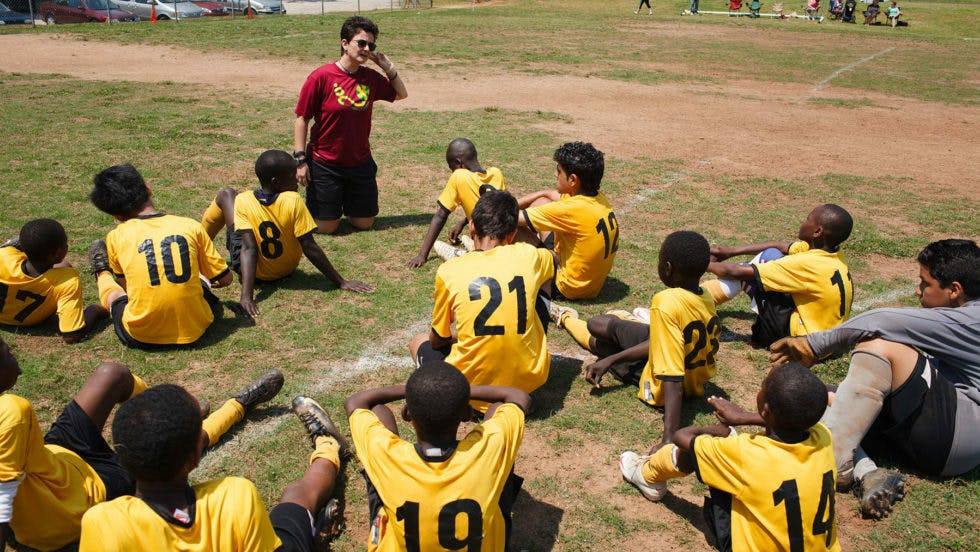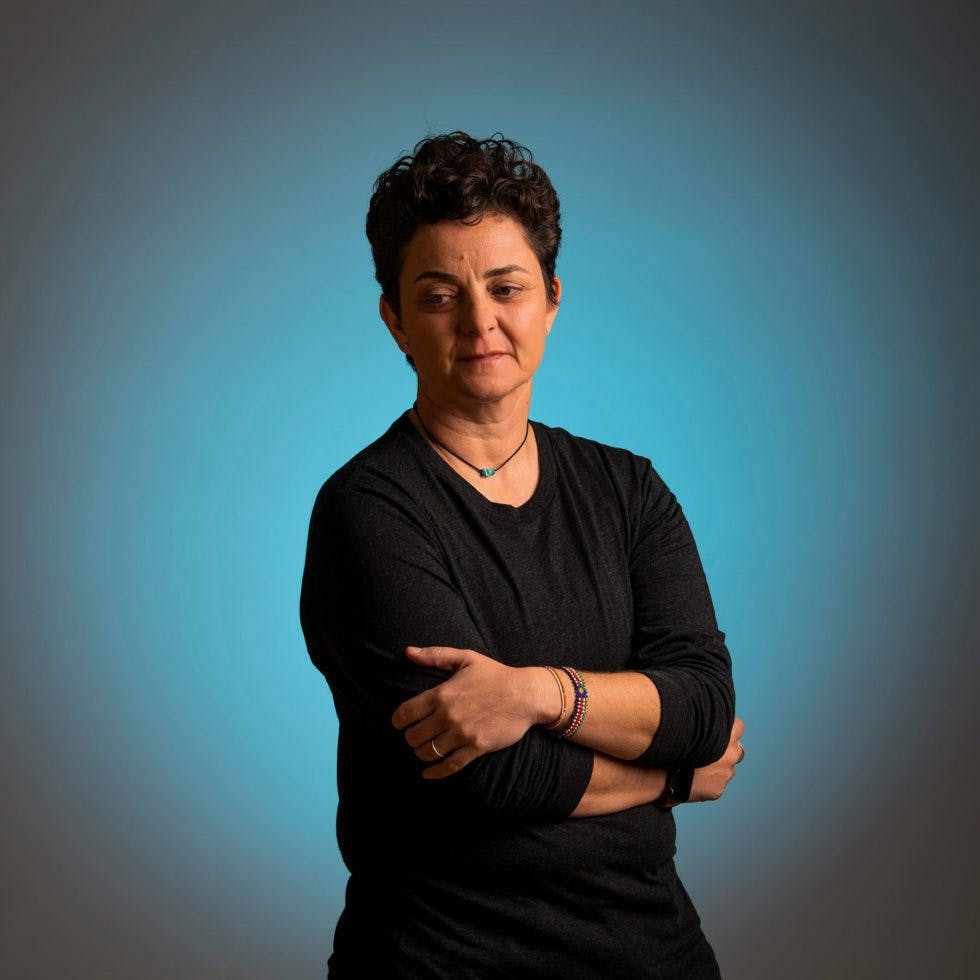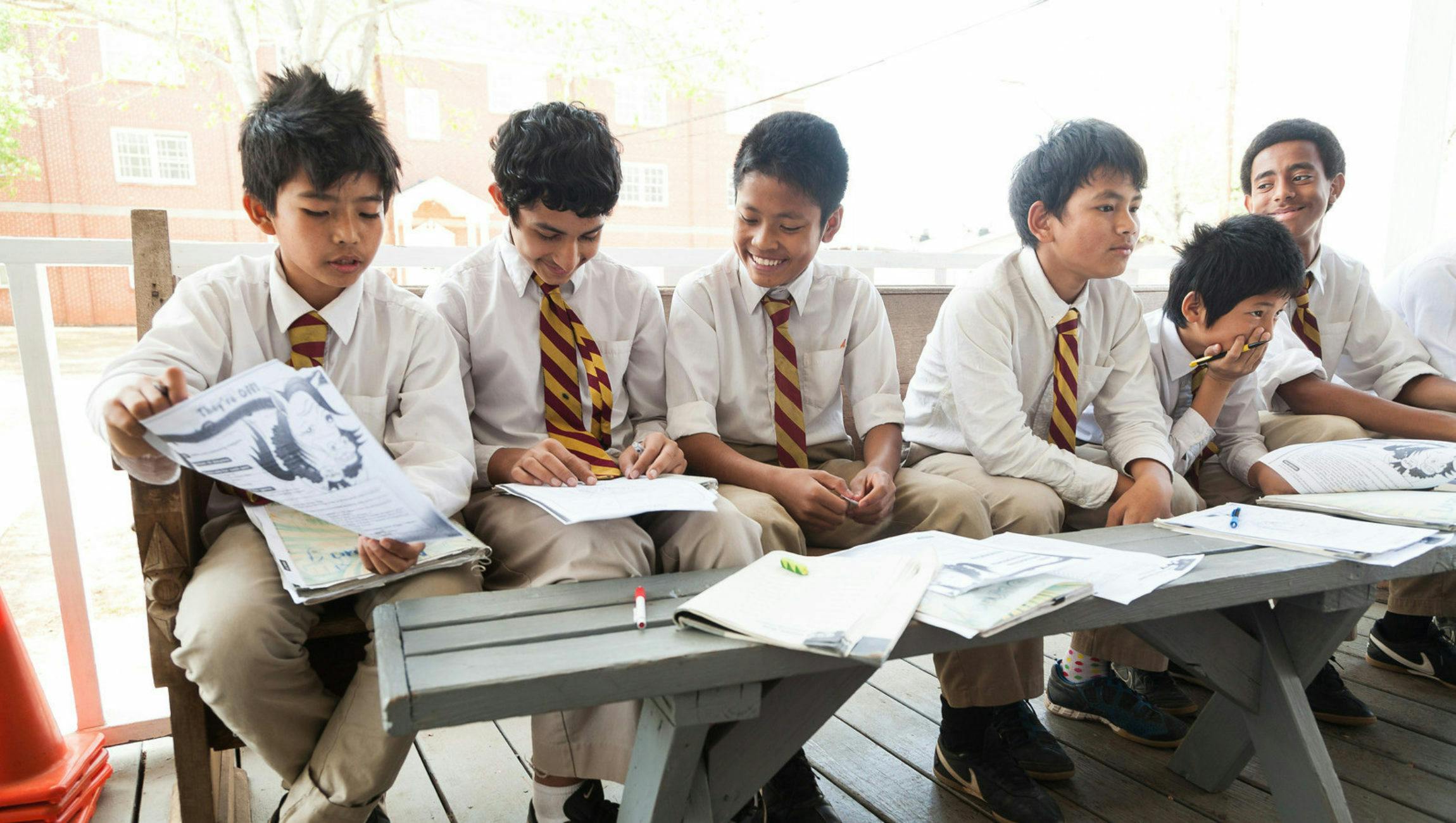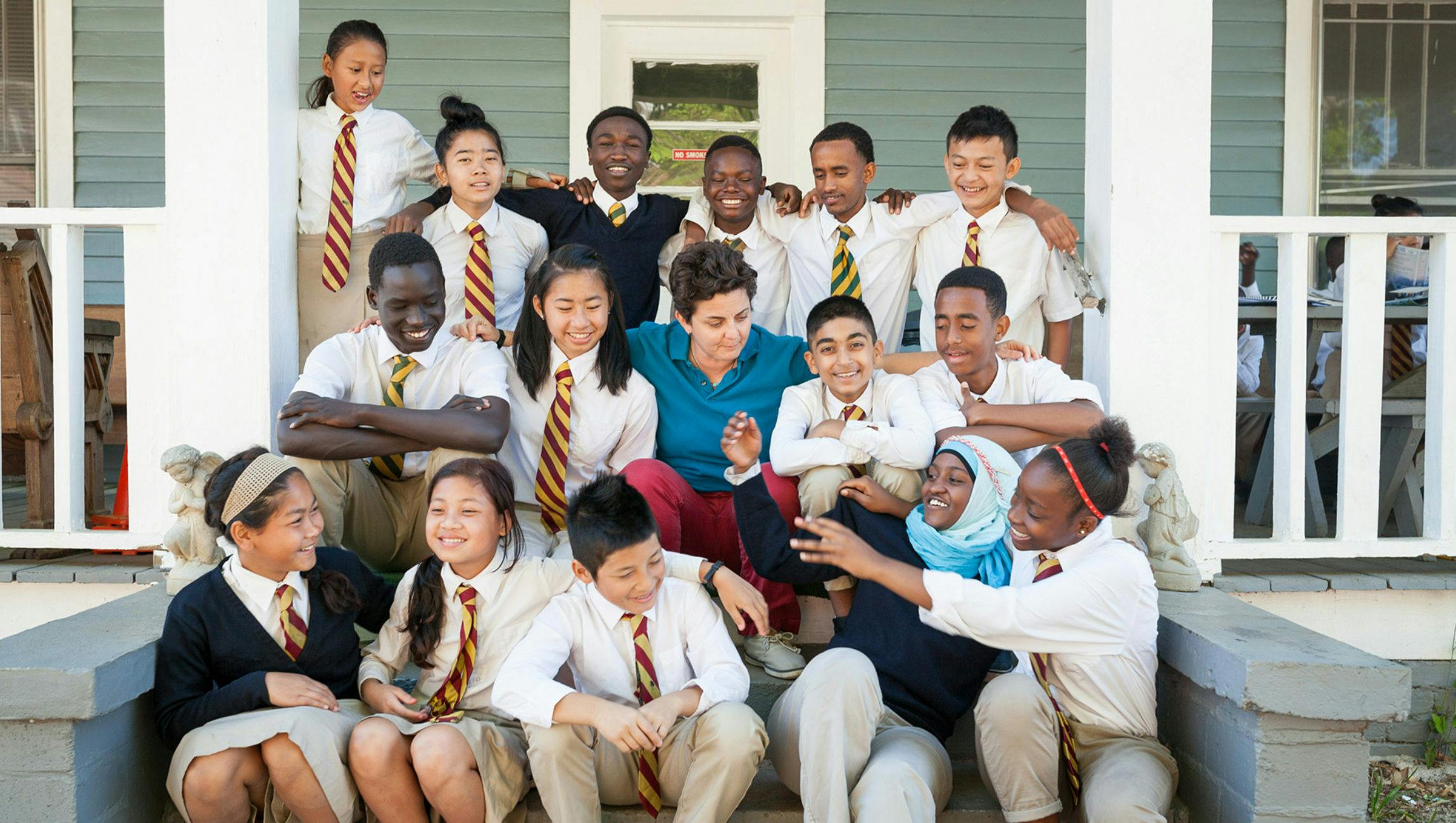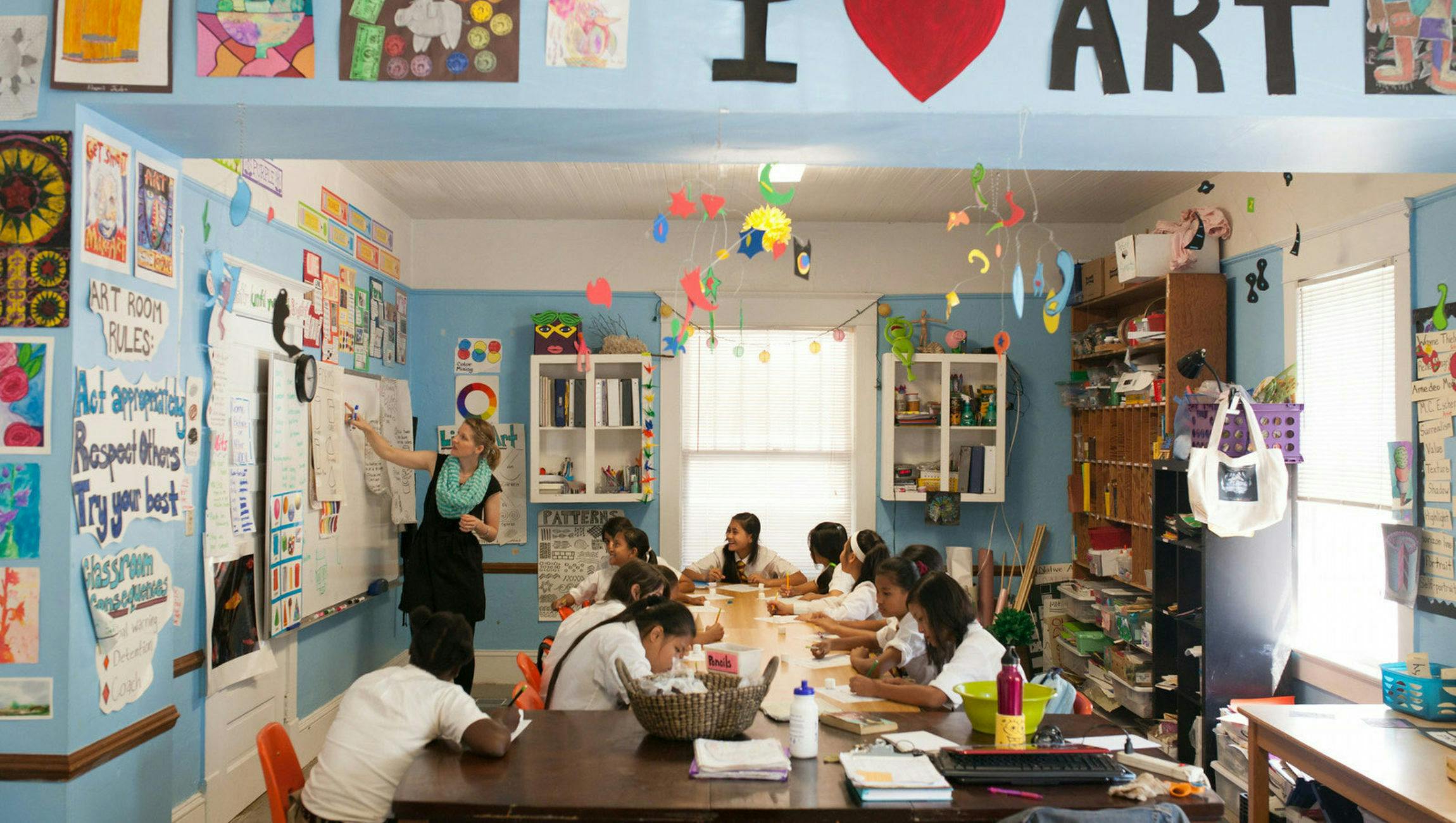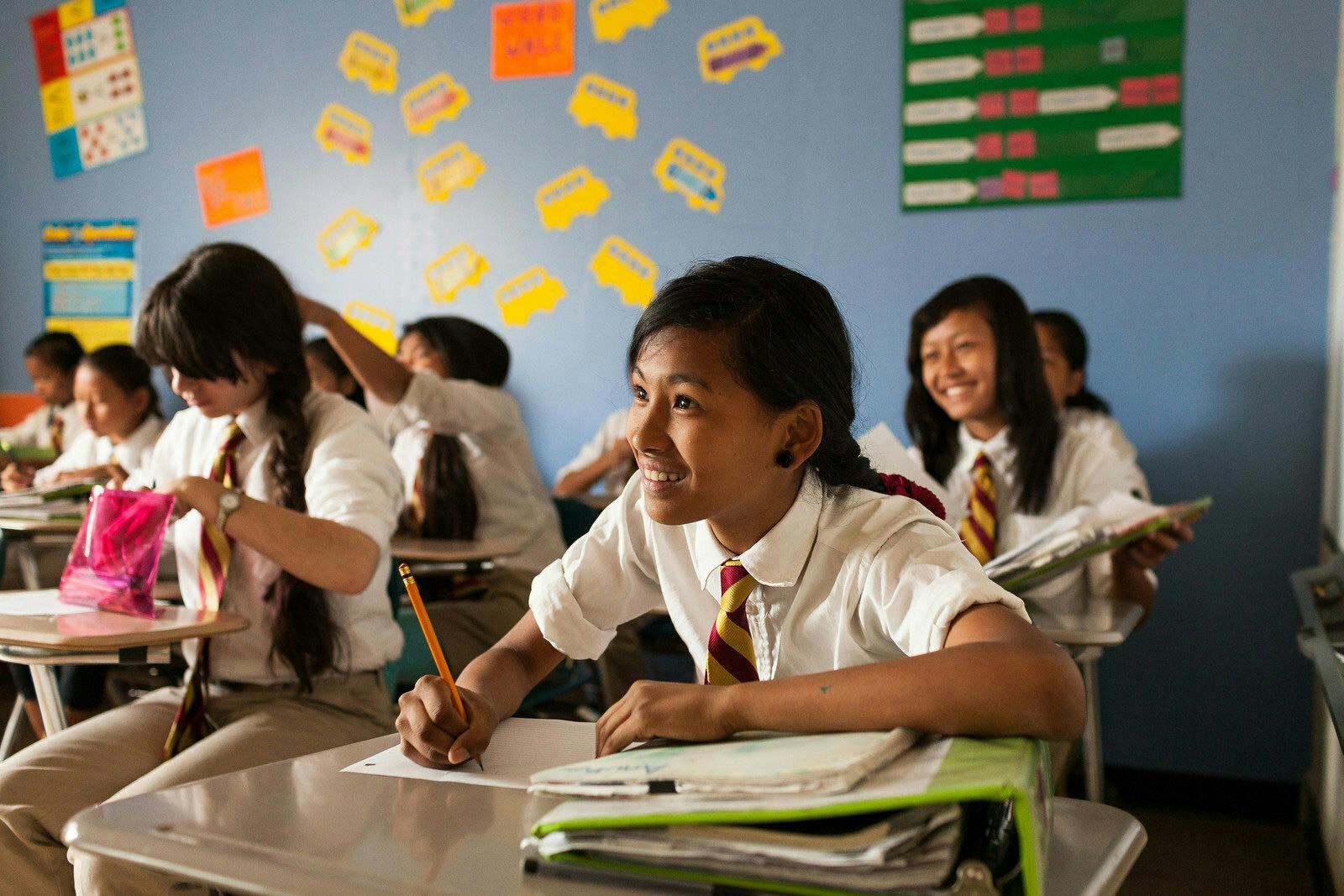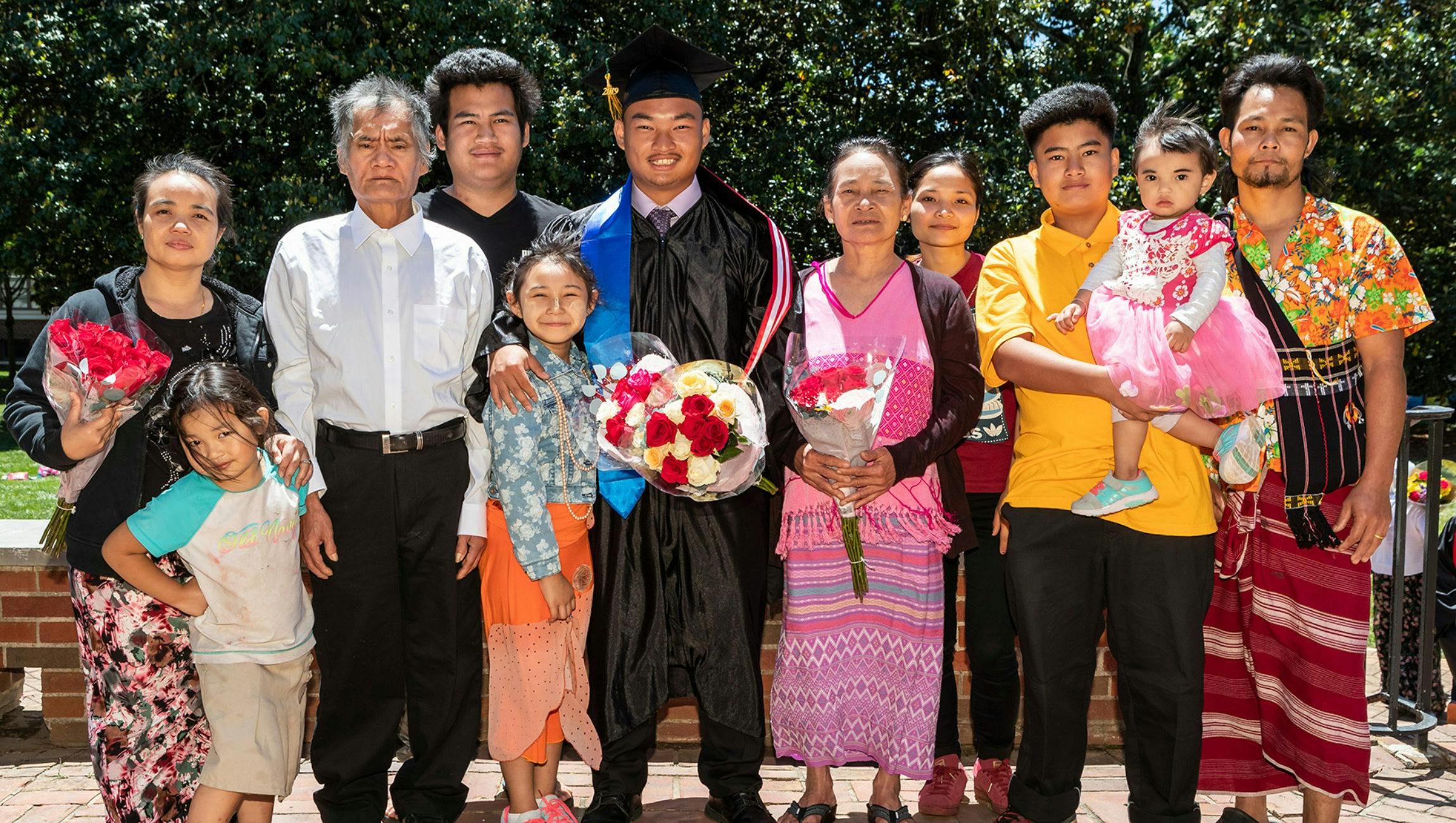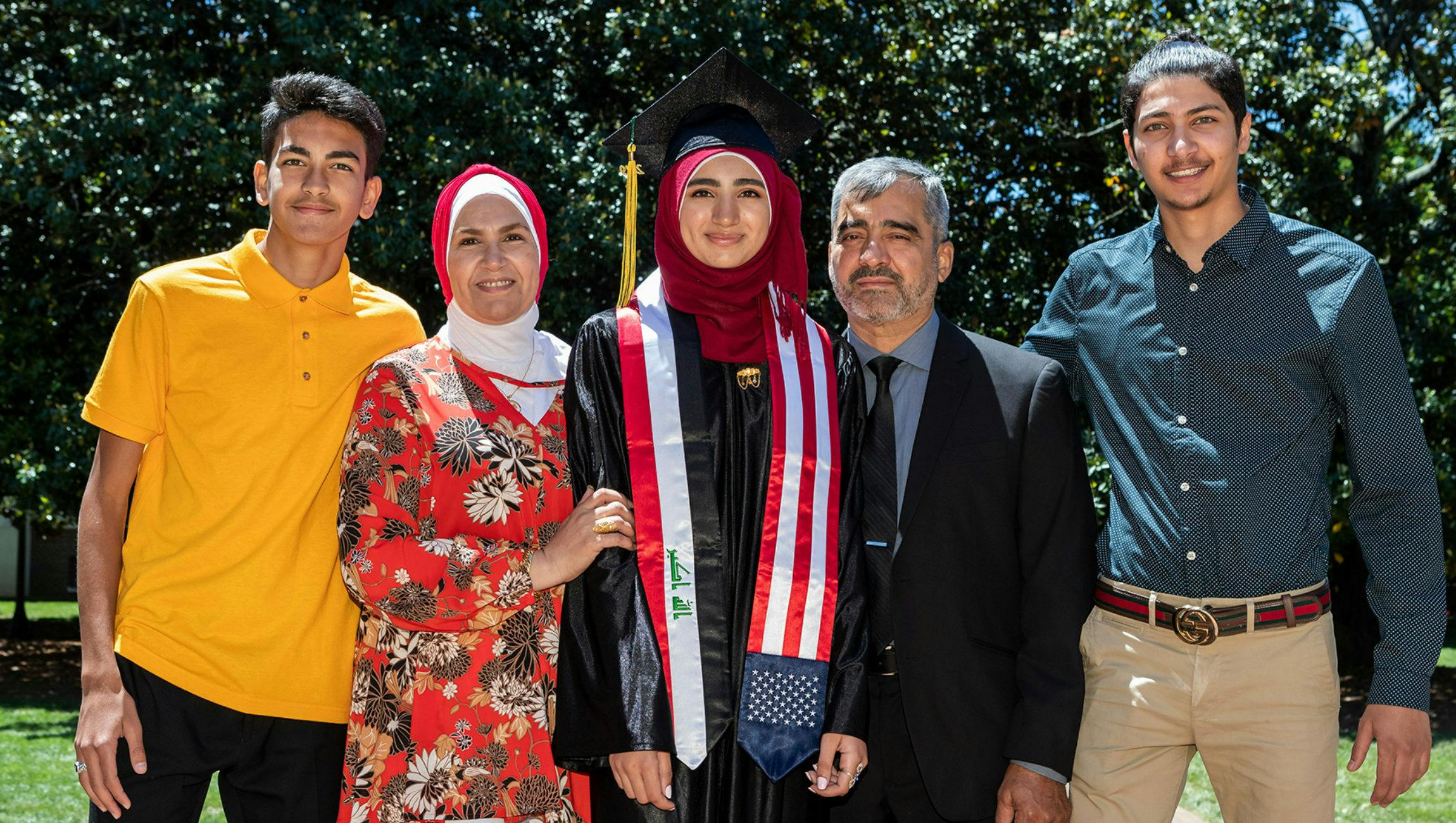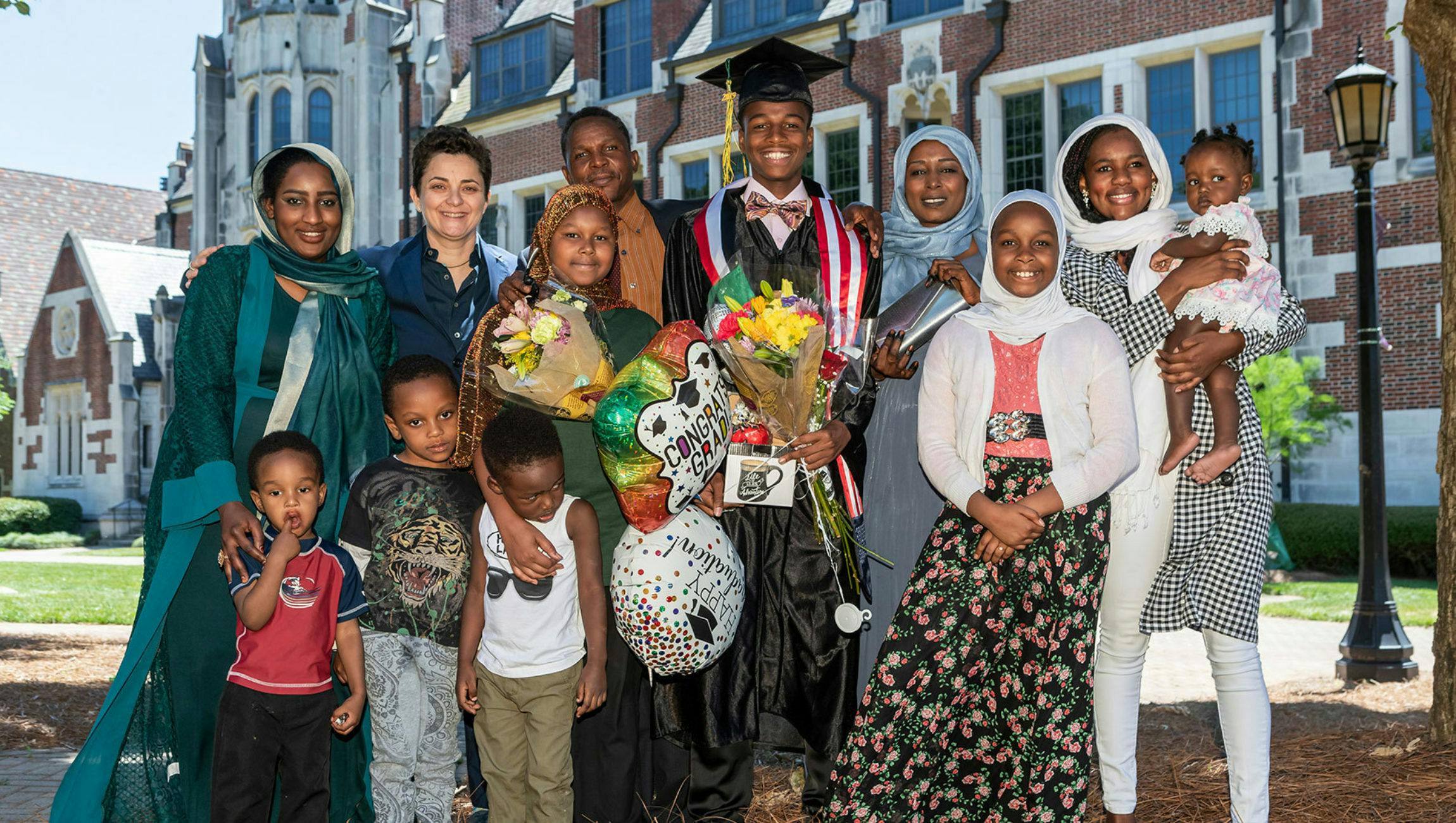The best way to support refugee students? Build a school just for them.
Luma Mufleh was looking for hummus. Real hummus, like the kind she ate growing up in Jordan.
Mufleh was on her way to a local Middle Eastern grocery store in Clarkston, GA, where she was living, when she took a wrong turn. In a rundown apartment complex, she spotted a group of children playing soccer, using rocks as goals. “They reminded me of home,” she says , “the way I grew up playing soccer in the streets of Jordan with my brothers and cousins, and I wanted to play with them.”
These boys were not from Georgia. They were from Sudan, Afghanistan, Liberia—immigrants and refugees, like she was. Mufleh, who was coaching club soccer, had a new ball in her car and asked the boys if she could play. “They were reluctant about letting a woman and stranger join in, but they really wanted the ball, so they discussed among themselves and reluctantly agreed to let me play,” she remembers.
Eventually, Mufleh and the boys formed a soccer team. Two years later, in 2006, that team evolved into Fugees Family, an after-school soccer program for refugee children. The program provided a much-needed support system for the growing population of refugee children in Clarkston—a community of peers and an outlet for the unique challenges that child refugees face.
Soccer is a universal language,” Mufleh says. “A child might not speak a word of English, but their face will light up the minute you show them a soccer ball.”
But for many of these children, adjusting to life in their new home was a struggle. Most couldn’t read or write. Some didn’t know the days of the week. Many couldn’t even speak English.
Mufleh saw herself in these children. She knew private school might be the only place they could find the specialized attention they needed, but she also knew that their families could never afford the tuition. Mufleh began to realize that it would be cheaper to start her own school than to send these children to private school.
So that’s exactly what she did.
Mufleh, an Emerson Collective Dial Fellow, grew up in Amman, Jordan, the granddaughter of Syrian refugees. As a child, Mufleh attended British and American private schools, where she struggled with her identity everywhere except on the sports field. “Sports was an outlet for me,” she says. “It was the only place I felt normal.”
She came to the U.S. for college. Eventually, Mufleh, a gay, Muslim woman, petitioned for asylum, which was granted because of the dangers LGTBQ+ people face In Jordan.
“I was very idealistic and naïve when I first came to the United States, because I thought every school in America would be like the private American school I went to in Jordan,” Mufleh says. “But the truth is that the majority of local public schools don't know how to serve English-language learners very well, let alone refugee students.”
For example, in the state of Georgia, refugees over the age of eleven enter a “Newcomer Center” for three to six months, where they are expected to quickly learn English before they are placed in an age-appropriate class. “Imagine that you don't know the letters to the alphabet, you don't know the days of the week, yet you're expected to read at grade level,” Mufleh says. “You're set up for failure.”
So, in 2007, Mufleh expanded Fugees Family to open Fugees Academy, the very first accredited private school for refugees in the country. It began as a middle school serving refugees in grades six through eight, but in 2011, expanded to high school.
At Fugees Academy, class size is never bigger than 15 students. Approximately 30 percent of teachers are refugees or immigrants themselves. Funded through donations, the school is tuition-free. Curriculum is based on the unique needs of students, not grade-level standards. The school celebrates holidays from all faiths – including Christmas, Eid, Holi, and the Buddhist New Year. And, of course, all students play soccer.
Next year, the Fugees Academy in Clarkston will become a charter school. “It gives us more flexibility in our curriculum and our school culture,” Mufleh says. “Charter schools were set up to be innovation hubs and incubators to impact public schools, and that's what we want to do. We want to show best practices for how to support the most vulnerable students.”
To date, Fugees Academy in Clarkston has graduated four classes of students—34 students total. Remarkably, every student who has graduated from Fugees Academy has been accepted into college. “But I think the most shocking data point is that 85 percent of our students are the first in their families to finish middle school,” Mufleh says. “That's how vulnerable our population is.”
LUMA MUFLEH, EDUCATOR AND REFUGEE ACTIVISTImmigrants show us the true values that are so important to democracy—free speech, fair voting, checks and balances.
In 2012, Mufleh voted in her first U.S. election. “I was surprised that there was no coup, that nobody overthrew the system,” she remembers. She had seen it happen before in the Middle East.
Given the current political climate, with the Trump Administration dramatically slashing the number of refugees allowed into the country to the historic low of 18,000, Mufleh believes it is more important than ever for the U.S. to listen to and respect the voices of refugees and immigrants.
“Immigrants show us the true values that are so important to democracy—free speech, fair voting, checks and balances,” she says. “They also show us the pitfalls of democracy—the dangers of criticizing the press, of not allowing people to speak up and to criticize our presidents. Immigrants have lived in countries that have done that. We don’t take it for granted that just because American democracy has survived so much, it can survive anything.”
Mufleh hopes the Fugees Family story will introduce more empathy into the national conversation about what it means to be American. “The refugee-and-immigrant story is not currently humanized,” Mufleh says. “We're trying to figure out how do we make America fall in love with the kids in our building, because I think that's what it's going to take.”
In 2018, Mufleh moved to Columbus, Ohio, where she opened a second Fugees Academy. She chose to expand to Columbus because of its large and growing refugee population, and because Ohio has school vouchers for low-income children to attend schools like Fugees Academy.
But she also knows that the school has a big opportunity to change the perception of refugees in the Midwest. While the school currently serves 132 students between its two campuses, Mufleh has ambitious plans to expand to Cleveland next year, and then beyond—with a goal of serving an additional 150 students every year within the next five years.
Mufleh is adjusting to life in Columbus. She and her wife just had their third child. When she’s not in the classroom or on the soccer field, she hikes local trails and takes her children to Jeni’s, a local, artisan ice-cream company.
And, of course, Mufleh has resumed her quest for the best hummus in town. Until she finds it, she jokes, the best hummus you’ll find in Columbus is at her own home.
